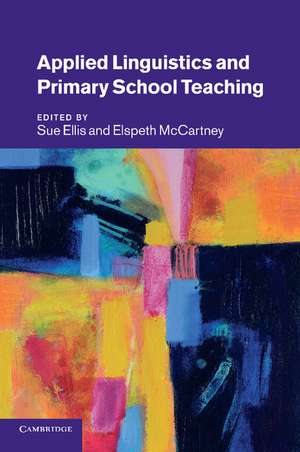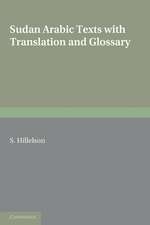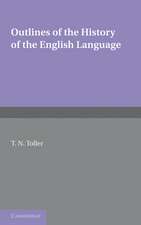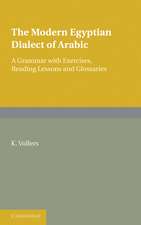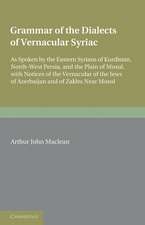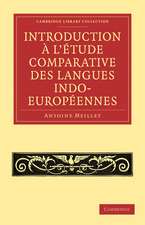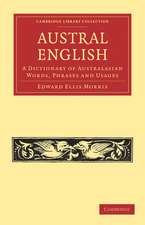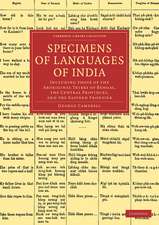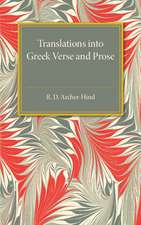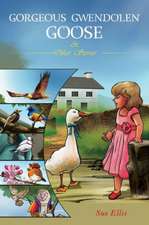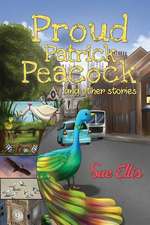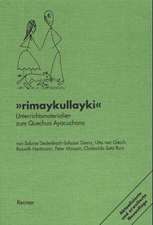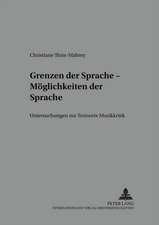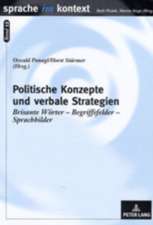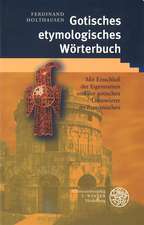Applied Linguistics and Primary School Teaching
Editat de Sue Ellis, Elspeth McCartneyen Limba Engleză Paperback – 16 apr 2014
| Toate formatele și edițiile | Preț | Express |
|---|---|---|
| Paperback (1) | 320.17 lei 6-8 săpt. | |
| Cambridge University Press – 16 apr 2014 | 320.17 lei 6-8 săpt. | |
| Hardback (1) | 504.62 lei 6-8 săpt. | |
| Cambridge University Press – 6 apr 2011 | 504.62 lei 6-8 săpt. |
Preț: 320.17 lei
Nou
Puncte Express: 480
Preț estimativ în valută:
61.27€ • 64.13$ • 50.99£
61.27€ • 64.13$ • 50.99£
Carte tipărită la comandă
Livrare economică 31 martie-14 aprilie
Preluare comenzi: 021 569.72.76
Specificații
ISBN-13: 9781107696877
ISBN-10: 1107696879
Pagini: 356
Ilustrații: 25 b/w illus. 15 tables
Dimensiuni: 152 x 229 x 19 mm
Greutate: 0.48 kg
Editura: Cambridge University Press
Colecția Cambridge University Press
Locul publicării:New York, United States
ISBN-10: 1107696879
Pagini: 356
Ilustrații: 25 b/w illus. 15 tables
Dimensiuni: 152 x 229 x 19 mm
Greutate: 0.48 kg
Editura: Cambridge University Press
Colecția Cambridge University Press
Locul publicării:New York, United States
Cuprins
Introduction Sue Ellis and Elspeth McCartney; Part I. Policy and Diversity in the Twenty-First Century Primary School: Introduction to Part I Sue Ellis and Elspeth McCartney; 1. Who decides what primary teachers need to understand? Dominic Wyse; 2. Working with English as a second language students: an Australian perspective on what primary teachers need to know Jennifer Hammond; 3. Preparing for diversity: the alternatives to 'linguistic coursework' for student teachers in the USA Deborah Horan and Afra Ahmed Hersi; 4. Supporting children with speech, language and communication needs Maggie Vance; 5. Foreign language teaching in the primary school: meeting the demands Dan Tierney; Part II. The Range and Focus of Linguistics Research Perspectives: Introduction to Part II Sue Ellis and Elspeth McCartney; 6. Grammar for designers: how grammar supports the development of writing Debra Myhill; 7. The use of corpus-based approaches in building children's knowledge about language Alison Sealey; 8. Words and pictures: towards a linguistic understanding of picture books and reading pedagogy Vivienne Smith; 9. From storytellers to narrators: how can the history of reading help with understanding reading comprehension? Elspeth Jajdelska; 10. Talk about text: the discursive construction of what it means to be a reader Gemma Moss; 11. Why we need to know about more than phonics to teach English literacy Terezinha Nunes and Peter Bryant; 12. Understanding children's reading comprehension difficulties Jessie Ricketts, Joanne Cocksey and Kate Nation; 13. Classroom discourse: the promise and complexity of dialogic practice Adam Lefstein and Julia Snell; 14. Pedagogy and bilingual pupils in primary schools: certainties from applied linguistics Angela Creese; Part III. Empowering Teachers and Teachers' Use of Knowledge: Introduction to Part III Sue Ellis and Elspeth McCartney; 15. Building knowledge about language into a primary teacher education course Henrietta Dombey and Jane Briggs; 16. Using the IPA to support accurate phonics teaching Greg Brooks; 17. Decoding, word recognition and spelling: typically developing children and children with language-learning difficulties Kenn Apel, Elizabeth B. Wilson-Fowler and Julie J. Masterson; 18. The development of the Speech, Language and Communication Framework (SLCF) Mary Hartshorne; 19. Applied linguistics: why a 'just in time' model might work for children with language impairments and empower teachers Sue Ellis and Elspeth McCartney; 20. Communication impairment in a multilingual context Carolyn Letts; 21. Teacher education: what applied linguistics needs to understand about what, how and where beginning teachers learn Viv Ellis and Jane Briggs.
Descriere
How applied linguistics knowledge informs literacy policy, curriculum and pedagogy in primary schools, making literacy teaching more efficient and effective.
